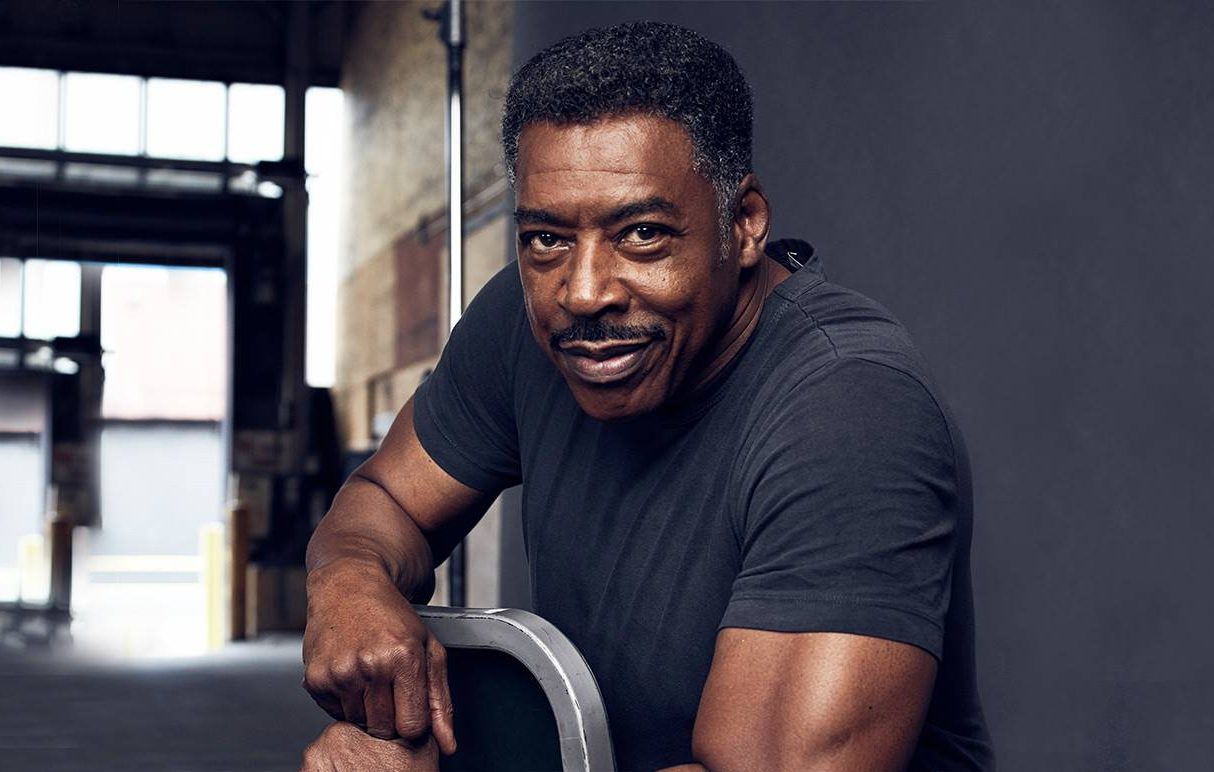Meet Ernie Hudson this Saturday, April 6 at Wizard World St. Louis.
It’s 7am in Atlantic City, and Ernie Hudson is preparing his cup of coffee before a full day of meeting his fans at New Jersey Horror Con.
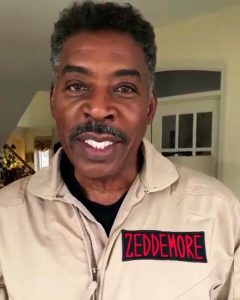
At 73 years old, the actor hasn’t slowed down for a minute. He holds an impressive 236 acting credits on IMDb (the International Movie Database) going back to 1976. He stars in two shows that just had their season finales, has two films and a show in post-production, and is filming L.A.’s Finest – the Bad Boys spinoff.
But Hudson always makes time for his fans.
“A friend of mine asked me to do the convention, I’ve known him a long time. This will be fun, I’m looking forward to it.”
And he even packs his Winston Zeddemore uniform from Ghostbusters for photo ops with fans next to the Ecto-1. Keeping busy is something that Hudson says he learned at a young age.
“When you have kids, and you have responsibilities – mortgages and all that stuff, you have to keep moving. As a little kid, I always worked. I’ve always found a job, found a way to make some money. Picking fruit on farms, or doing some kind of little work around stores. In the winter time, I would go out and chop up wood and sell it to people. Back then they had furnaces where you could stoke them with wood and coal. I’ve always found a way to at least make some kind of money to help the household. So I’m used to staying busy.”
For the Fans
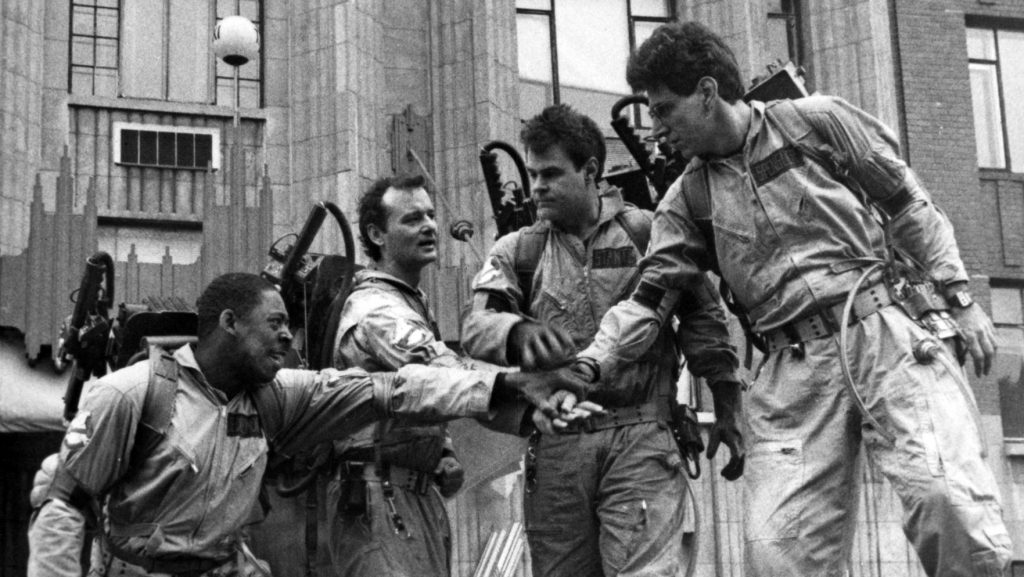
He says that he has to tell himself that it’s okay to sit down once in a while and that he doesn’t have to do everything. But also that it is important to find the perfect balance between staying energized and taking care of himself.
“I could be home, but on the other hand, I do get energy from meeting people – people who saw the movies, and hearing their stories. Meeting their families, meeting their kids. It’s a two-way street, you know? You give a lot, but you also receive a lot. When I say I’m not going to do anything, and then I sit and I’m more tired – somewhere I think there’s a balance.”
Speaking of balance, the actor holds family high up on his list of priorities. And always has.
“As a little kid, to have the ideal family was so important to me. I didn’t have a dad, so I wanted to be this perfect dad. When I was little kid I had my grandmother, who was up in age, and so that’s why I always worked – to help the household. I’ve spent much of my life taking care of family, and friends who were having a difficult time.”
Hudson recently signed up to be a part of Cameo, a service that allows fans to pay a fee for a personalized video message. He’s really enjoying yet another way that he can interact with the fans.
“It’s an app where fans can request a shout out for birthdays, for friends, or just whatever. I was amazed by how much fun it is just to be able to share. So a little bit of that is in there as well, but you have to balance it.”
Back in the old days, things used to be a lot different when it came to interacting with his fans. That’s why he loves what conventions have done.
“You kind of did it through the mail. You got a lot of fan letters, a lot of fan request for photos or whatever. These were people you’d never meet. A lot of times people would grab you on the street, which was kind of uncomfortable. What I love about the conventions is you get a chance to sit across a table and talk to somebody one-on-one. If I’m out shopping, or with my family, and a fan came up… it’s uncomfortable, it’s not the place for it. Conventions provide a safe place to do that. A lot of times they’ll get excited, and want to tell me about the movie, or the scene in the movie that meant so much. Sometimes they’ll quote the whole scene. And it’s okay because that’s kind of why we’re here. But in everyday life, I don’t know who this is.”
The actor loves that by taking the time to interact with fans, it can brighten both of their days when they need it.
“One of the things I love about being an actor – sometimes I’m on the street, or just going about life – I’ll see someone walking down the street, and you can just feel the weight of the world on their shoulders. They’re really looking down, or you can just feel that energy. And then they’ll look up and see you – and they recognize you from something they saw at some point. And they’re like, “Oh my God, I can’t believe it’s you!’ And suddenly that cloud disappears, and they’re excited like, ‘Hey man, can I get a photo?’ or ‘Wait until I tell my mom I met you!’ And when they walk away, it’s like there’s this whole other energy in their step. And that’s kind of cool because it doesn’t cost any money. It only takes a moment. I recognized a long time ago, it’s how I engage people – if someone comes up to me and I look down on them or don’t connect with them, they walk away feeling worse. So to be able to recognize that little kid in them, and the little kid in me, and be able to make that connection on a human level is important. Then I go away feeling better, and they go away feeling better. And that’s what you want.”
Act I
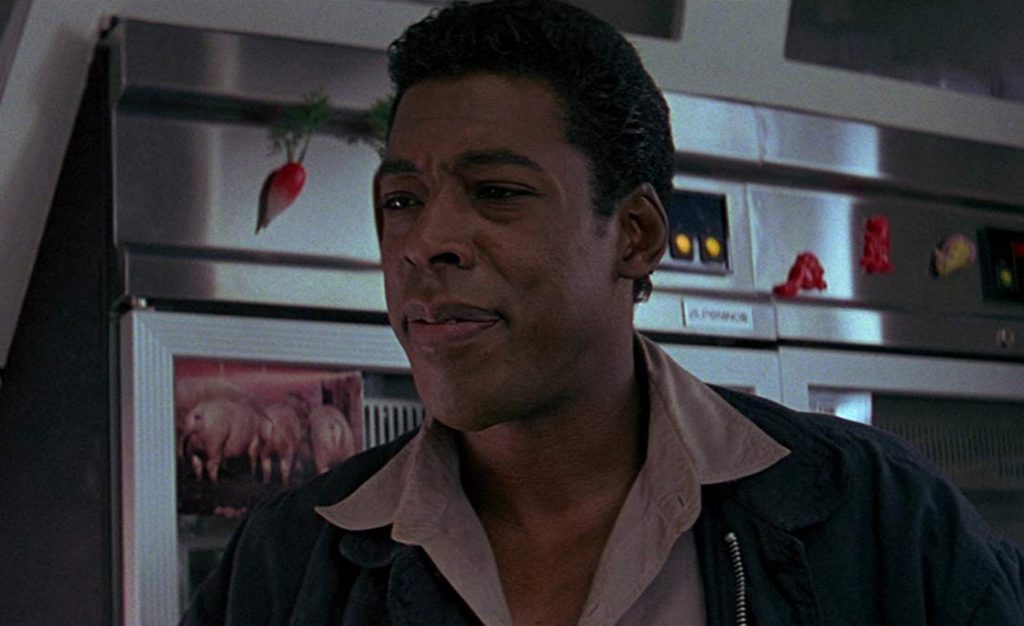
Growing up in what he describes as a poor town in Michigan, Hudson didn’t always imagine a career in acting.
“I didn’t know anybody who was in entertainment. You see people in magazines, but that’s really far removed from any possibility. It’s different now I think for kids, because media is so strong. But in those days, Hollywood was like Mount Olympus somewhere. But I had written some plays in church, and I’d done some acting in those. And in high school. But it wasn’t something that I thought I’d ever been able to make a living at. It wasn’t until I got out of school, and got into college that I discovered theatre – and just really fell in love with it. And I began to believe, ‘Hey, I could do this!’ And I got a shot at it. I think it’s so important to believe that you are in the game and that you’ve got a chance at winning. I think one of the downsides of what’s happening in this country now is so many kids are told over and over and over again that they don’t stand a chance. And once you sort of except that it’s like, ‘What’s the point?’ It’s unfortunate, and I think we, certainly in the sixties, and John Kennedy comes to mind, King and those people. It gave us the faith that anything was possible, and no matter where you started you could accomplish and become. Sometimes all you have is that belief.”
The actor says it wasn’t so much about becoming a star as it was that he just wanted to work.
“To get a chance to do this work – I guess I really consider myself a working actor. I’m amazed every time I get a chance to do what I do. I mean, it’s a blessing. It’s a little bit different than I think if you’re a musician, you know? Acting is something where you almost have to get hired. You can’t just go to a restaurant and give monologues or something. You really need to be a part of a group, and you need to be asked to be included. So to be able to do this is just amazing to me.”
It was the theatre that would eventually lead Hudson to television, and then film.
“I started acting in ’66 doing theater. While in college, the first movie I did was in ’76. I did Leadbelly with Gordon Parks. So it was mostly theater, and really owning that space. I finally did The Great White Hope in Minneapolis, and that was sort of life-changing. I came out to LA, and I did a couple of films. I was sort of thinking that way, and got Ghostbusters.”
Who You Gonna Call?
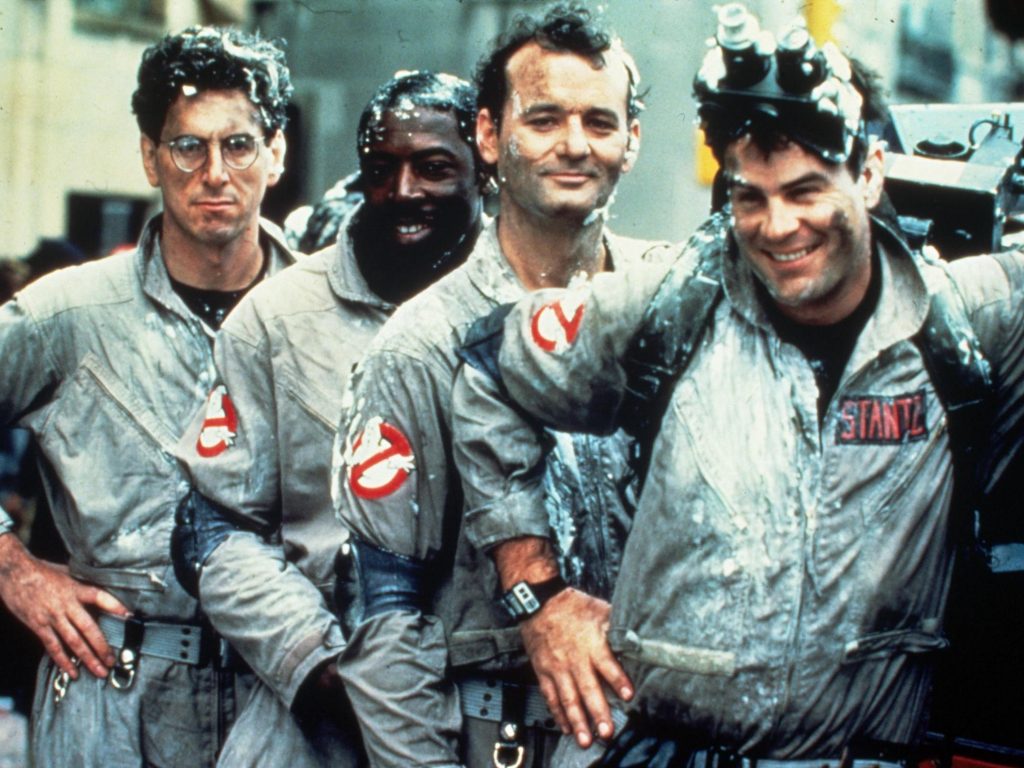
“Ghostbusters just sort of flipped on me. It went just the opposite of what I thought it would. I thought Ghostbusters would open the door, and suddenly I was in a major studio movie. I had done Spacehunter before, and I had done a couple of movies and things before that. What happened was when Ghostbusters came out, I kept getting shut down. It was the opposite of what I thought. Suddenly it was hard for me to get films. I was a single dad, and I had to be responsible and take care of my kids. So TV was there and basically, I just focused on that. I did a lot of those early TV shows for three years basically, after Ghostbusters, before I got another movie – which was Weeds with Nick Nolte.”
Once he landed his role in Weeds, the doors opened back up.
“After Weeds, I think I did 7 or 8 movies back to back. Leviathan was in there. And then when Ghostbusters II happened, same thing. The movies shut down until The Hand That Rocks the Cradle. That was a couple of years later. The thing with Hollywood, and maybe acting in general, is if you’re working you never really know why you’re working. Nobody ever really tells you why they hired you. You say it’s because I’m talented, but maybe it has to do with somebody said something. Who knows, but you’ve got the job and be thankful! And if you’re not working, you never know why you’re not working. Because you should be working. So you never really get a clear truth about what’s going on. You think you know, but it’s hard to say. I know a lot of people thought I was a comedian because Ghostbusters was kind of a comedy. And I had a hard time getting them to really see me as Solomon in The Hand That Rocks the Cradle. I think they thought of the character in Ghostbusters, and it was obviously not that guy.”
The actor says it was even hard for him to get an audition for a film at the same studio where he was promoting Ghostbusters.
“They were asking me to go out for advertising things, promotions, and then they were doing Soldier Story – which was predominantly a black cast. And I couldn’t even get an interview with Columbia Pictures! I was a single dad, and I didn’t make a lot of money on Ghostbusters, and I needed to work. It was a real growing up time for me. It was the first time I did a commercial, first time I started doing voice-over stuff. Things I really hadn’t seriously considered, but I just had to get a job. The landlord doesn’t want to hear the story, you know?”
Although it may not have been the immediate career-changing role he had hoped for, it did have a huge impact on his daily routine.
“Things were changing around me. Fans were coming from everywhere, knocking on my door. Someone was visiting and stopped by the store on the corner. And the guy would go, ‘Hey, you know that actor who was in Ghostbusters? He lives right down the street.’ And people would show up with their families. But in the meantime, I hadn’t made any money. I realized why people live behind gates because suddenly there were no barriers there. So all that craziness came with it, but there wasn’t any money to sort of protect you. And that was a little weird. I honestly wasn’t used to that, so it was just kind of a very, very strange time. And in terms of friends and family, they see you in this big movie. And then all of their stories of Hollywood, they think your life is changed for the better, and you must be rolling in dough. And none of that was true.”
Hudson said while on set for Ghostbusters, everyone felt good about the film. But it was impossible to predict the phenomenon it would become.
“Some movies you’re on set, and everybody is really preoccupied and busy, and you don’t connect. It’s just a movie. Or sometimes a couple of people are behaving badly, and everybody is just trying to get through it. Every set is different. That’s why I like acting – because it’s not 9 to 5, the same people every day for 50 weeks. Every set is different, every story is different, the crew is different. But sometimes the vibe is good. Ghostbusters felt good, and we had fun. It was fun to be a part of it, and it was fun to be there. I really believed when I read the script that the movie would be a hit, and number one. Because you want to believe in what you’re doing. But I really felt that the energy was there. I think everybody thought that. I wasn’t surprised that it was all of that during that summer. It was great to be a part of a hit film. But I was amazed at how it sustained itself.”
Life After Ghostbusters
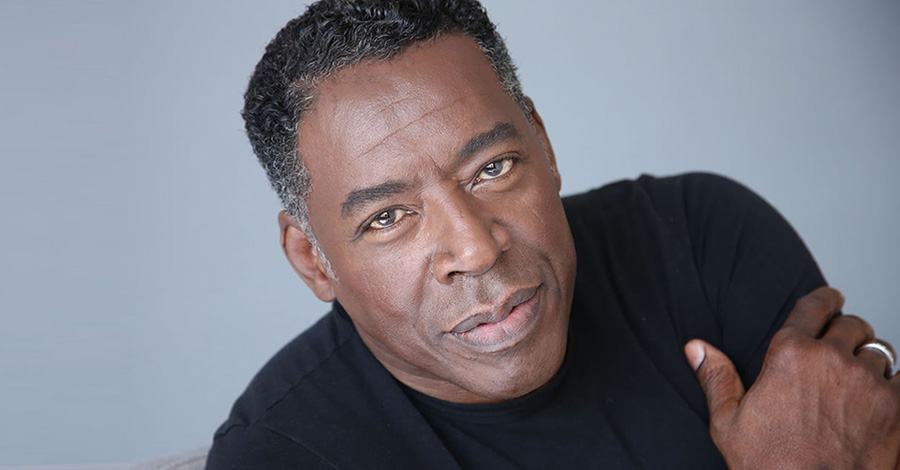
On the film’s box office success, he said,
“Once a movie opens the box office at number one, couple weeks, and then it drops down and people go on to talk about other stuff. And that’s sort of it. I’ve done a lot of those movies. But Ghostbusters, even when it sort of disappeared from the box office, people kept singing the song. It just kind of never disappeared. That was the strangest thing for me. And after five years, and ten years, people were still dressing up as Ghostbusters. And people were coming up to me when I started working, doing other stuff, in their jumpsuits. And twenty years later, thirty years later. That is a phenomenon to me. I don’t think me, or Bill Murray, or anybody thought about that. And Bill, and Harold, and those guys – they had done a lot of movies, like Stripes and Meatballs, and a couple of really successful films. But I don’t think they expected the way Ghostbusters had sort of continued to connect with people. I don’t think anybody suspected that.”
Hudson says you never know how fans will react to a film. Sometimes when you think they’ll love it, they don’t. And vice versa.
“And it’s hard to reproduce that. I think in the second movie, we tried but it sort of didn’t register. Even though there are people, and especially kids, who think the second movie is more family friendly. A lot of the kids who saw that movie first like that movie better, because it is. The first movie to me is really very amazing, but it was a little intense in places – especially for kids.”
It’s no surprise that he gets asked frequently if there are any favorite memories from the set of either film that he has.
“I think probably the most fun for me was just being fairly new to the business. I had been acting for almost ten years, but I was really new to film and that sort of thing. And so watching Bill Murray, and how he connected with fans, that was always fun for me. I think being on set, and he just had a sort of magical way that I think I learned from. How you deal with people, like we talked about earlier, with people coming up and connecting. I think I always wanted to be as gracious about it as I felt Billy was. I like the way that he connects in a real way. And Harold, he was sort of always the balancer. He kept things connected when things got really sort of weird, or things are going on and I don’t know because nobody’s talking to me about why we’re not shooting or what’s happening. Harold was always the go-to guy, who looked at the business in a very practical way. I think that’s important when it comes to sustaining in this business. And why I never went a bit nuts wondering why things weren’t happening, was watching Harold – who never lost his common sense. You pick up things from people, and you never tell them. I don’t think I ever told Harold that, but I learned a lot working and watching him.”
On how often he gets asked, “Who you gonna call?” He says,
“I don’t think there’s a day that goes by, like when I’m going shopping or whatnot – that’s the first thing people say. And they’ll say it in a way as if they think I haven’t heard that before. Like, ‘Hey Ernie, I’ve got this joke. Who you gonna call?’ And I know, and I see it in their face, and I don’t want to disappoint them. So I always act like, ‘Oh, wow. I’ve never heard that one!’
The actor says this in a playful way, one that comes from kindness. During our talk, Hudson was nothing but gracious and friendly. You can tell that he has a real joy when it comes to connecting with his fans.
“People will drive down the street and yell it out of cars. It’s fun, you know? I’m glad in this day and age there’s something people can feel positive about. It’s nice to be a part of that.”
The Crow
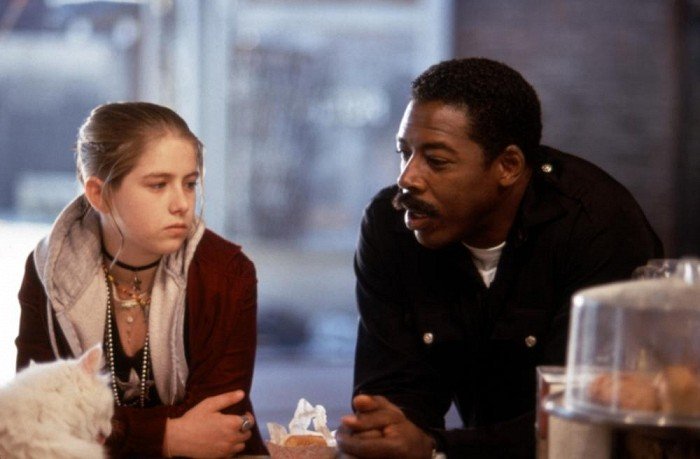
Delving into his later career we talked about 1994’s The Crow, in which Hudson plays Sergeant Darryl Albrecht.
“I met Brandon Lee when I was working in Vancouver, Canada on a TV show called Broken Badges. Miguel Ferrer was one of the actors in it, and he and Brandon knew each other from childhood or something. Brandon stopped through on his way from Hong Kong, and spent about a week there. I got to know him fairly well. This was probably five or six years before we did The Crow. So I kind of knew him, and he wanted me to do this film. I saw Alex Proyas, the director, and thought he was an amazing director. I loved Brandon, he was just really a sweet guy. There was kind of no pretense about him. The thing about Brandon, he had a way of sort of including everyone. So when the accident happened, it just was unbelievable. It’s even hard now to believe that someone could actually lose their life on a set. The stuff we do is not supposed to be dangerous.”
On-set injuries are still something that Hollywood struggles with. Stuntwoman Joi “SJ” Harris passed away in 2017 due to an accident on the set of Deadpool 2. And Hudson himself even witnessed a serious injury on a recent project.
“I just finished working on a show where we had, once again, a terrible accident and one of the producers lost a leg. So, you know, these things aren’t supposed to happen. But Brandon, it was just sad. If there was any good to come out of it, I think the movie turned out to be something he would have been proud of. It was unfortunate because I thought he was a sweet guy. I’m always looking for lessons to learn.”
The actor will always remember how kind Lee was to him, and how he helped his wife through a difficult time.
“My wife’s brother passed away a couple of days before Brandon’s accident. We had to fly to Minnesota for her to go back there. So we had dinner with Brandon the night before he died, and he was very supportive to my wife. And very kind. Then he and I got into a conversation about the business, and he was basically saying, ‘Hang in there.’ He had done some films that he didn’t feel that great about, and he was using himself as an example. ‘Look at me Ernie, now I just signed a multi-picture deal with Paramount. I met the girl of my dreams, and I’m getting married as soon as we wrap the film. I just bought a house.’ All these amazing things, and that it can happen for me too. And all of that bright future that he was so excited about just never happened. It’s one of those unexpected things that just makes no sense, but you know, it’s not for us to understand. We don’t know why things work the way they do, but I really appreciated him for who he was.”
After the accident, there were re-shoots necessary in order to finish the film. It was hard for the actor to return to the set, but in the end, it was worth it to see the project completed.
“We had eight days of filming, and for a while, I really didn’t want to go back. I think I was angry at the studio – they had gotten rid of their weapons expert a couple of days before that. They shouldn’t have. I was angry at Michael Massee, because you know you don’t point even a blank. All of these things that I thought I understood, and that’s why I’ve been learning as I get older: judgment is not appropriate ever. Because you don’t really know. Michael Massee was just destroyed for years after that. It’s really unfortunate, but life – it’s a gift. Nothing is promised, so we never know.”
When Hudson remembered how much the film meant to Brandon, he returned to finish filming.
“Like I said before, I was reluctant and didn’t want to go back. But one of the people called and reminded me how hard Brandon had worked on it. Brandon didn’t ask a lot, or demand a lot… So we all wanted to go back and finish it for him. We were shut down for about a month, but we went back for eight days and finished. And I’m glad we did. Outside of Ghostbusters, I probably get more Crow fans than anything else I’ve done. I’m really thankful to have been a part of it, even though it was tragic in the end.”
Welcome to the Jungle
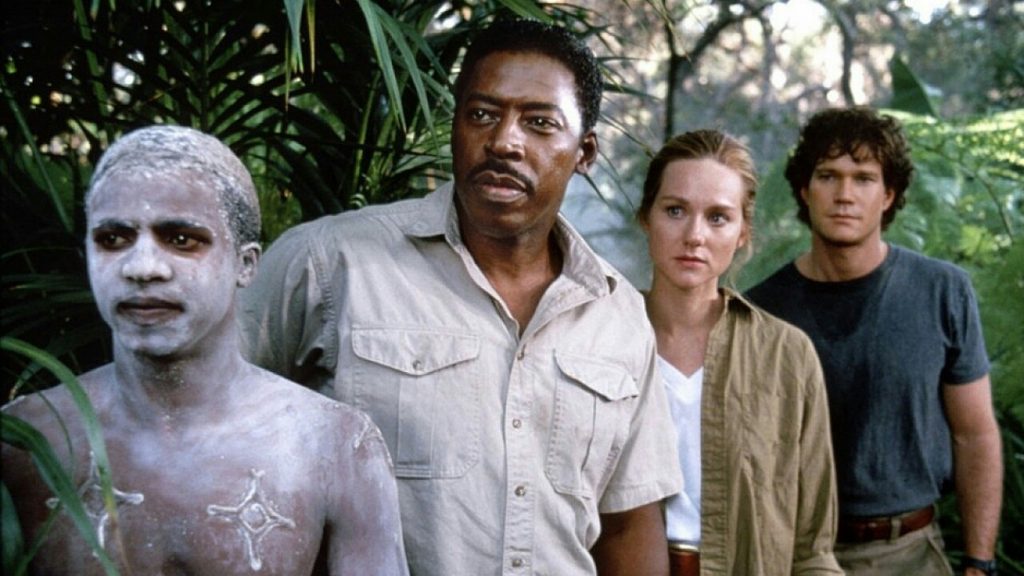
A year later, he would go on to star in another cult classic: Congo.
“Congo was fun because it was a big film – but it was also a character that I really hadn’t done. I always wanted to be the cool guy, and Congo gave me the chance to be the cool guy. I liked Monroe Kelly. When I grew up there was an actor that had this mid-Atlantic so=called accent, and they were kind of cool. They always led the safari. You know in those days, if there was a film about Africa and you were black, you’d die really quickly. And so this was a chance for me to be the safari leader. It was a fun character, and they reluctantly allowed me to do the accent. I probably had more fun doing Congo than I did doing anything. I just loved the character.”
And if you wondered if he ever got to try any of Captain Wanta’s sesame cake (a character played by Delroy Lindo), wonder no longer.
“No,” he laughed. “No, I think my character wanted to get us through this thing. And so you don’t mess with the sesame cake. You know, Tim Curry’s character is just totally about to blow everything for everybody. But it was fun working with Delroy – it was the first time he and I had worked together. I loved that scene, and it was great to see him come in and do his thing. The stuff I do, it’s fun! Very basic, and simple, but it’s a lot of fun.”
In 1997, he would go on to be a part of one of HBO’s early original series successes – Oz, where he played Warden Leo Glynn.
“Oz was really special. I look at a lot of the cast members, who have gone on and are still doing great work. I met Tom Fontana (the creator) when I was doing the television show St. Elsewhere – I did a six-episode arc on it. He told me he had some things going, and we’ll work together again. You know, people say stuff and I’m like, ‘Yeah, sure. Right.’ And then he did Homicide and he didn’t use me on it so I’m like, ‘That’s the end of that.’ But then he calls me up and says, ‘Hey Ernie. You know we talked, and I’ve got this show and I want you to be the Warden. That was really pretty cool to work with him. I think he’s an amazing, talented writer. It was probably the best cast I’ve worked with, because everybody came there to show up and give their best. It was stuff that was on the edge, even though it doesn’t seem as much now because a lot of TV is. But at the time, it was out there! And just great to be a part of.”
Hudson loves that he’s had the opportunity to play such a wide range of characters throughout his career.
“I’ve been fortunate to play a lot of different characters. I feel for a lot of actors who are only seen as the tough guy, or the bad guy because that’s how people perceive them. I’ve been fortunate enough to be able to play a little range of characters.”
When asked if he preferred playing a more serious role, or working in comedy – or if there was any other genre he’d rather act in, he says,
“No, I just like to work! And I like to be able to mix it up a little bit. I do a show called Grace & Frankie, and what I love about that is he’s just a guy. It’s a comedy but is not going for jokes. When I got the job, I think Jane Fonda – who’s the executive producer – wanted me to be more macho, or aggressive. And I said, ‘No, he’s just a guy. He doesn’t have to do that.’ I like the differences. Someone might say, ‘Well, you are always this or that.’ But I see differences in the characters. I love the shading and the coloring of the story. I think that’s what we do. And if I had to just sort of be me all the time, or what I think of as me – or do just one thing – I probably wouldn’t be acting. You read a story and, yeah, it’s a dad. And you can just play the dad like somebody else would. But it’s a different dad. Ultimately it’s all me, but it’s the different parts of our personalities. We’re all sort of connected, and I see that connection in the work.”
What’s next?
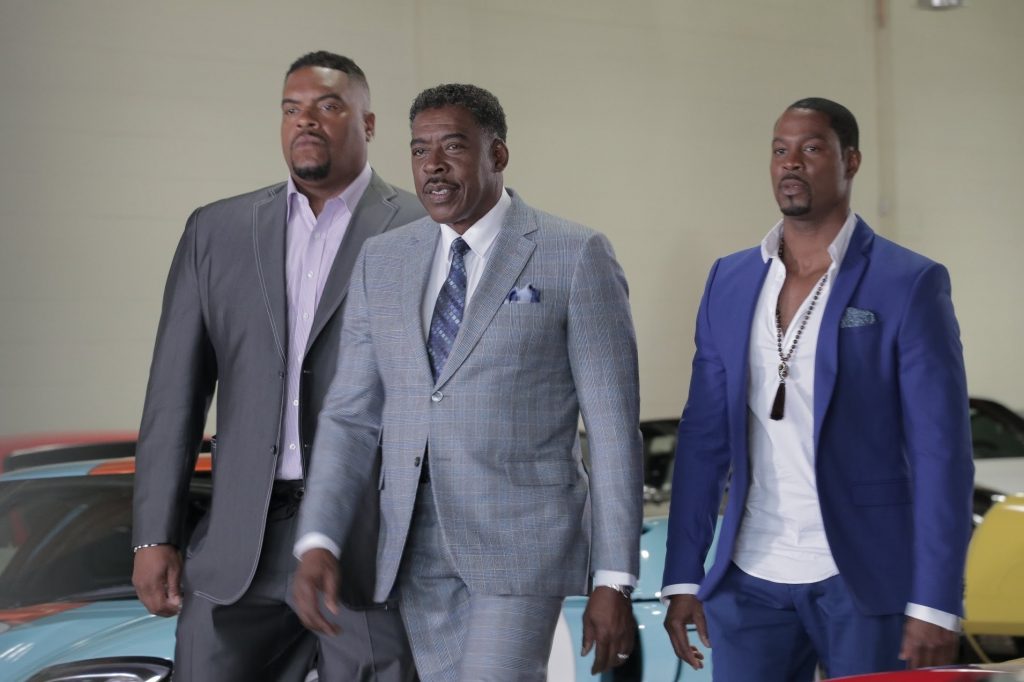
Is there any role left that the actor would love to tackle? Hudson says a superhero film.
“I’ve done Cyborg in an animated show, and I’ve done some Batman episodes. Louis D’Esposito is president of Marvel, and he’s a friend. I keep telling him and hinting, but I’m not quite sure why that hasn’t happened. But like I said, you never know why you’re working and you never know why you’re not. I’d love to be a part of the Marvel Universe, or DC. Honestly, you take what’s there. But now at this stage of my life, somebody’s got to want me.”
Although he hasn’t played a superhero in one of these films yet, Hudson is going to get another step closer this season on Arrow.
“John Diggle, who is played by David Ramsey – I play his dad. What I loved about Arrow is I got to be a part of the action. Sometimes they bring me in as ‘dad,’ and I don’t get to do anything outside of that. But it was a really cool action part, and I had so much fun. We just finished a couple of weeks ago. I enjoyed that a lot.”
But the question on all Ghostbusters fans’ minds is, will the original team be back on the big screen? Jason Reitman, the son of the original film’s director Ivan Reitman, is set to helm the next film in the franchise – due out in 2020.
“They’re doing a new Ghostbusters, and if they want me… But I don’t want to be where I’m not wanted. Now when I was younger, I just wanted the job. Whether you want me or not, I’m going to convince you that you want me. But I ain’t convincing anybody. I love to work, but it’s gotta be kind of a mutual thing. And so far, nobody’s approached me with anything. They haven’t offered me anything in that. I want to do it, I just want to make sure they want me enough to be fair. But no matter what, I’m happy it’s being done. The fans have been so loyal to the franchise. It’s amazing, and I’d love to see something they can all come together on and get excited about.”
Ernie Hudson will be at Wizard World St. Louis this Saturday, April 6. For more information, visit WizardWorld.com.

